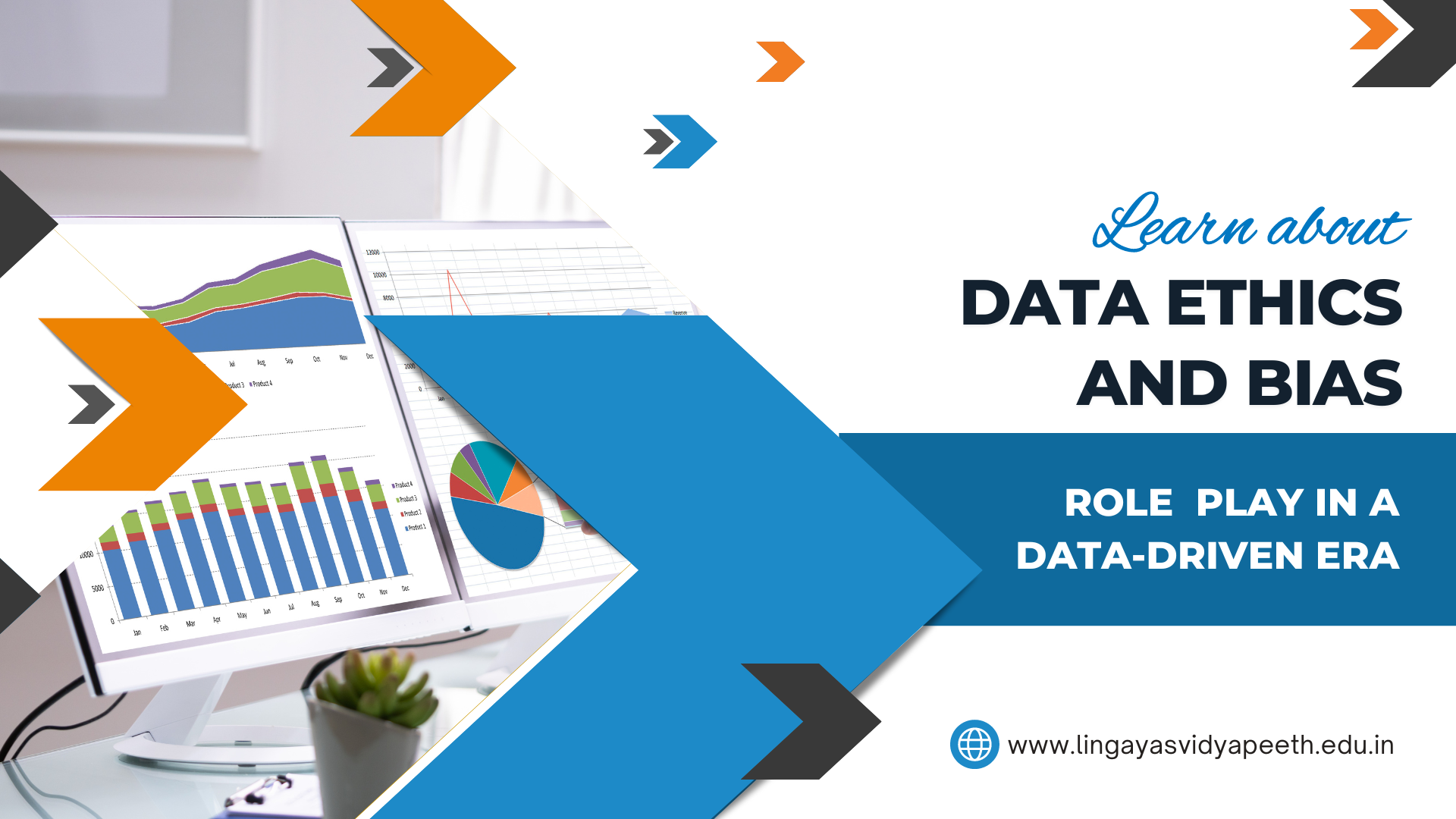Home » What Role Do Ethics and Bias Play in a Data-Driven Era?

Data is the new oil, they say. It fuels innovation, drives decision-making, and shapes our world in profound ways. But like any powerful tool, data comes with a responsibility – the responsibility to be used ethically and fairly. Enter the realm of data ethics and bias, a crucial conversation in our data-driven world. Buckle up, data users and creators alike, as we delve into the complexities of data ethics, explore the pitfalls of bias, and discuss how to navigate this critical landscape.
Data ethics is a framework of principles that govern the collection, storage, analysis, and use of data. It ensures that data is handled responsibly, with respect for privacy, fairness, and accountability. Here are some core principles of data ethics:
Bias is a systematic prejudice that can creep into data at various stages:
The consequences of bias in data can be far-reaching:
So, how can we combat bias and build a fairer data-driven future? Here are some steps:
Addressing data ethics and bias requires a multi-stakeholder approach:
Conclusion-
Data ethics and bias are complex issues with no easy solutions. However, by acknowledging the challenges, actively combating bias, and fostering collaboration, we can build a data-driven future that is fair, trustworthy, and beneficial for all. Remember, the power of data comes with a responsibility. Let’s use it responsibly, ethically, and with a commitment to building a more just and equitable world.
When it comes to pursuing a B.Tech degree in Data Science, Lingaya’s Vidyapeeth is the name you can trust upon, being one of the best universities in Delhi NCR to pursue B.Tech. in Data Science, it gives you comprehensive curriculum blending theoretical knowledge with hands-on experience. Benefit from industry-relevant projects, and esteemed faculty, ensuring proficiency in data analytics, machine learning, data visualization etc. Equip yourself with sought-after skills and propel your career in the field of data science!
From
Tanya Chauhan
Asst. Professor in CSE Dept
Lingayas Vidyapeeth
Best Colleges in Faridabad for B.Tech CSE
RECENT POSTS
CATEGORIES
TAGS
Agriculture Agriculture future AI Architecture artificial intelligence BA English BA Psychology BTech CSE BTech Engineering Business management career Career-Specific Education career guide Career Opportunities career option career scope Civil engineering commerce and management Computer Science Computer science engineering Data science degree education Engineering Engineering students English Literature english program Exam tips Fashion Design Fashion design course Higher Education Journalism journalism and mass communication law Law career Machine Learning MA Psychology Master degree mathematics MBA Mechanical Engineering Pharmacy Psychology Research and Development students
University Address: Nachauli, Jasana Road, Faridabad, Haryana
Toll Free: 1800-120-4613
Mobile : 8447744303 | 8447744304 | 8447744306 | 8447744309
Address: C-72, Second Floor, Shivalik, Near Malviya Nagar,
Above HDFC Bank, New Delhi 110017
Ph.No. - 011-46570515 / 45138169 / 41755703 / +91-7303152412
Jagmani Kutir, Ground Floor, Road No-1, Rajeev Nagar,
Near Darbar Marriage Hall, Patna-800024, Bihar
Contact No: 9818352069/8130120095
Mail: [email protected]
Copyrights © 1998 - 2025 Lingaya's Vidyapeeth (Deemed To Be University). All rights reserved.
It is important to note that the following email IDs and domains are fraudulent and do not belong to our university.
LV only conducts physical/online verification of any document related to examination on the following email id: